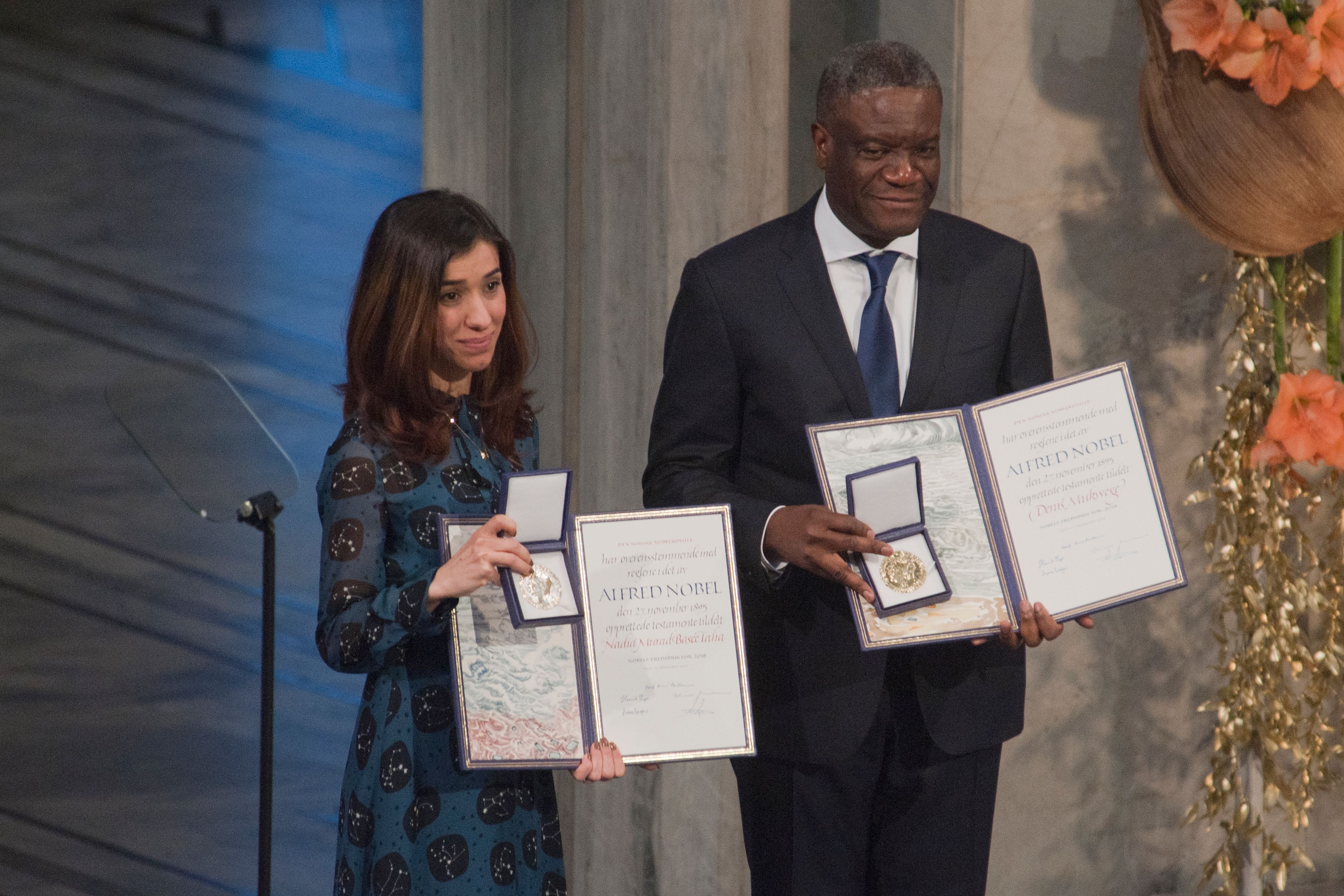The Nobel Peace Prize Laureates of 2018
The Nobel Prizes have often been criticized for overlooking women and women’s issues. But with this Nobel Peace Prize, the Nobel Committee put the spotlight on one of the key issues for both women’s issues and peace.
Women Pay the Ultimate Price
It is a prize firmly planted within the aims identified in the will of Alfred Nobel. It is an area in which the reduction of arms still has a long way to go. An area clearly identified as a war crime. It is a topic that the United Nations and Secretary General Antonio Guterres has recognized as a top priority. It is a matter that has become even more relevant and debated with the past years’ focus on #MeToo. The subject shows that we still have a long way to go to raise awareness, protect victims and survivors, as well as prosecute those responsible. And it is an area where yet again, key individuals take the front seat. They pay the ultimate price for a fight that benefits us all: a fight to stop violence against women; a fight to stop sexual violence.
"It is a choice: - whether or not we stop violence against women"

Nobel Peace Prize for 2018
The key individuals awarded the Nobel Peace Prize for 2018 are Dr. Denis Mukwege and Nadia Murad for their efforts to end the use of sexual violence as a weapon of war and armed conflict. The physician Denis Mukwege has spent large parts of his adult life helping victims of sexual violence in the Democratic Republic of Congo. Since the Panzi Hospital was established in Bukavu in 1999, Mukwege and his staff have treated tens of thousands of women and girls who have fallen victim to such war crimes, most committed in the context of a long-lasting civil war that has cost the lives of more than six million Congolese. 400 women are treated every month. Mukwege is the foremost, most unifying symbol, both nationally and internationally, of the struggle to end sexual violence in war and armed conflicts. His basic principle, as quoted by the Nobel Committee, is:
“Justice is everyone’s business!”
And Denis Mukwege has repeatedly condemned impunity for mass rape and criticised the Congolese government and other countries for not doing enough to stop the use of sexual violence against women as a strategy and weapon of war. Mukwege has said that he has little doubt that rape is the “monstrosity of the century”. Nadia Murad is herself a survivor of war crimes - one who has decided to turn her own tragedy into a struggle to fight violence against women. She is a member of the Yazidi minority in northern Iraq. Several hundred were massacred in the Yazidi villages when the Islamic State (ISIL) launched a brutal attack in 2014, aimed at annihilating the population. A coordinated genocide. Many women were abducted and held as sex slaves. While a captive of the ISIL, Murad was repeatedly subjected to rape and abuse, as part of the ISIL military strategy. She managed to flee, but rather than suffering in silence like many other survivors, chose to speak openly and become a spokesperson in the fight against such war crimes.
"With the voice and participation of women, we can make fundamental changes in our communities."
Incredible Courage
Both Denis Mukwege and Nadia Murad have shown courage in recounting sufferings and speaking up on behalf of other victims. They have put their personal security at risk. And they have paid a price their struggle. Yet, they have decided to make it their missions to keep going. It is based on such stamina, determination and personal stories that the struggle may succeed after all. Because people can relate to and understand personal stories and sacrifice, more than they can relate to conference calls and UN resolutions.
2018 marks a decade since the UN Security Council adopted Resolution 1820 (2008), which determined that the use of sexual violence as a weapon of war and armed conflict constitutes a war crime and a threat to international peace and security. Yet, whilst women are identified as key actors around the negotiating table, and we know that peace processes with women involved lasts longer and is more sustainable, the progress is still slow. The Peace Prize put the spotlight on the victims and the survivors. But it also sheds a bright light on the tools we need to use to protect those who need protection, and to prosecute the perpetrators. Because a more peaceful world can only be achieved if women and their fundamental rights are recognised and protected.
Share: